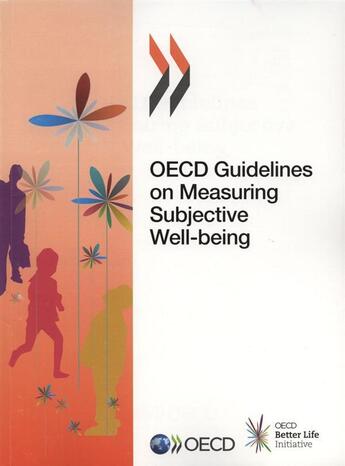Des idées de lecture pour ce début d'année !
Passionné(e) de lecture ? Inscrivez-vous
gratuitement ou connectez-vous pour rejoindre la
communauté et bénéficier de toutes les fonctionnalités du site !

Being able to measure people's quality of life is fundamental when assessing the progress of societies. There is now widespread acknowledgement that measuring subjective well-being is an essential part of measuring quality of life alongside other social and economic dimensions. As a first step to improving the measures of quality of life, the OECD has produced Guidelines which provide advice on the collection and use of measures of subjective wellbeing.
These Guidelines have been produced as part of the OECD Better Life Initiative, a pioneering project launched in 2011, with the objective to measure society's progress across eleven domains of well-being, ranging from jobs, health and housing, through to civic engagement and the environment.
These Guidelines represent the first attempt to provide international recommendations on collecting, publishing, and analysing subjective well-being data. They provide guidance on collecting information on people's evaluations and experiences of life, as well as on collecting «eudaimonic» measures of psychological well-being. The Guidelines also outline why measures of subjective well-being are relevant for monitoring and policy making, and why national statistical agencies have a critical role to play in enhancing the usefulness of existing measures. They identify the best approaches for measuring, in a reliable and consistent way, the various dimensions of subjective well-being, and provide guidance for reporting on such measures. The Guidelines also include a number of prototype
Il n'y a pas encore de discussion sur ce livre
Soyez le premier à en lancer une !

Des idées de lecture pour ce début d'année !

Si certaines sont impressionnantes et effrayantes, d'autres sont drôles et rassurantes !

A gagner : la BD jeunesse adaptée du classique de Mary Shelley !

Caraïbes, 1492. "Ce sont ceux qui ont posé le pied sur ces terres qui ont amené la barbarie, la torture, la cruauté, la destruction des lieux, la mort..."